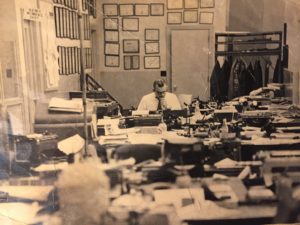The first series I wrote after I became a full-time investigative reporter, in 1969, was successful. It was called “A Sewer Named Sugar” and it exposed polluters of a creek that ran though the most popular park in Charlotte and then south, through its wealthiest neighborhoods.
The Sugar Creek series won some prizes, including the top prize for Public Service from N.C. Press Association, and it got me my first invitation to speak about my work, at what was then known as Queens College.
I didn’t prepare a talk, no need to. It was just class of students and I knew that creek story pretty well — I had just finished reporting it. I’d wing it, answer a few questions, and go back to work.
Well, turns out, it wasn’t a just class of students, it was an auditorium full of students. It was a symposium, and I wasn’t the only speaker. I was just the only one who was not prepared.
I embarrassed myself. If someone had had a hook to pull me off the stage no doubt they would have used it. I was more than embarrassed, I was humiliated.
In the years that followed I got many more opportunities to talk about my work, at more than a dozen universities and a number of journalism conferences. Each and every time I was invited to speak I thought about that Queens College debacle. And I made up my mind –when I finished talking the worst thing anyone was ever going to say about me was this:
“Well, he won’t very good but he sure was prepared.”
Coming Monday: The Embezzler
